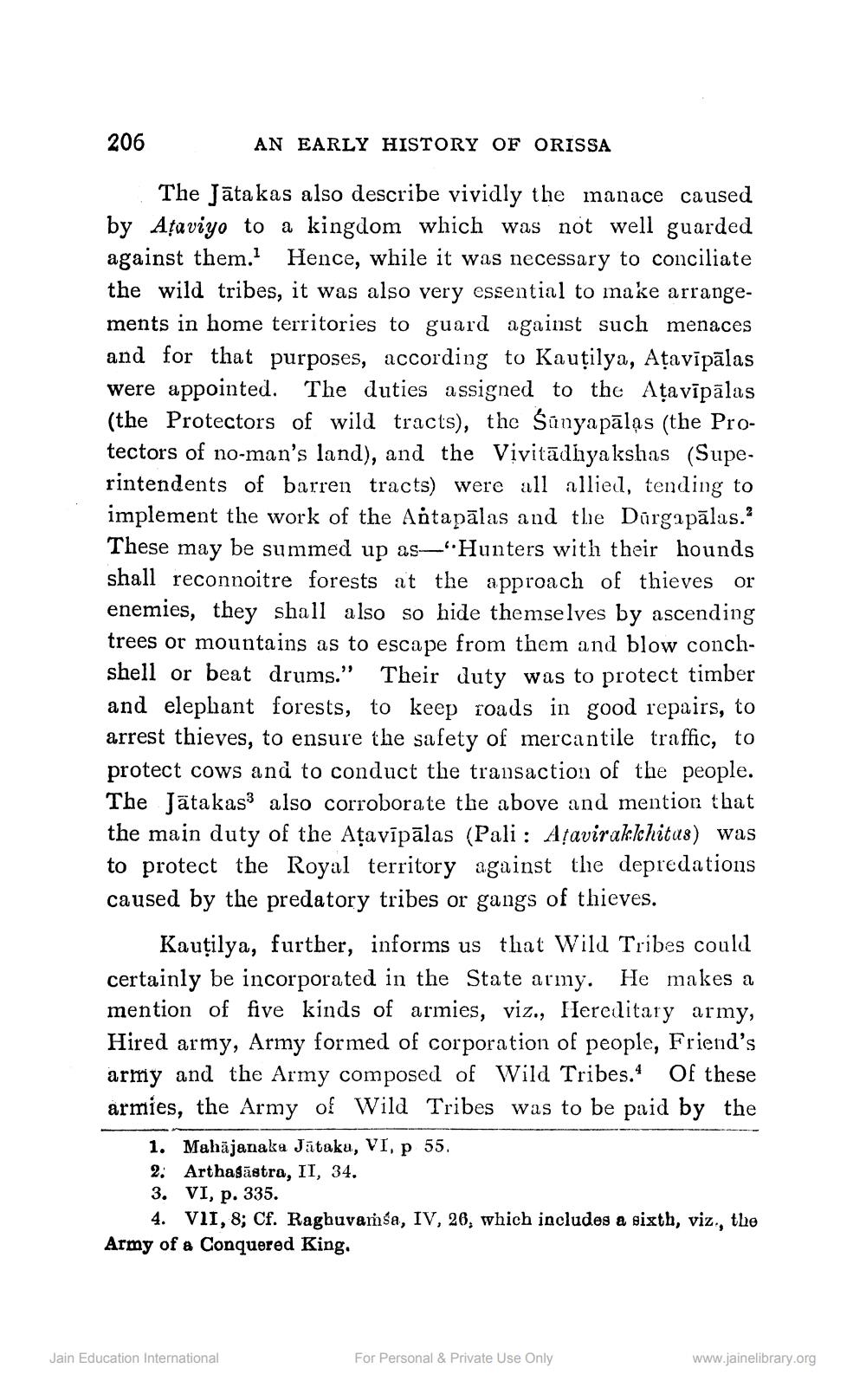________________
206
AN EARLY HISTORY OF ORISSA
The Jātakas also describe vividly the manace caused by Ațaviyo to a kingdom which was not well guarded against them. Hence, while it was necessary to conciliate the wild tribes, it was also very essential to make arrangements in home territories to guard against such menaces and for that purposes, according to Kautilya, Ațavipālas were appointed. The duties assigned to the Ațavīpālas (the Protectors of wild tracts), the Sünyapālạs (the Protectors of no-man's land), and the Vivitādhyakshas (Supe. rintendents of barren tracts) were all allied, tending to implement the work of the Antapālas and the Durgapālas.? These may be summed up as—"Hunters with their hounds shall reconnoitre forests at the approach of thieves or enemies, they shall also so hide themselves by ascending trees or mountains as to escape from them and blow conchshell or beat drums." Their duty was to protect timber and elephant forests, to keep roads in good repairs, to arrest thieves, to ensure the safety of mercantile traffic, to protect cows and to conduct the transaction of the people. The Jātakas also corroborate the above and mention that the main duty of the Ațavīpālas (Pali : Asavirakichitus) was to protect the Royal territory against the depredations caused by the predatory tribes or gangs of thieves.
Kautilya, further, informs us that Wild Tribes could certainly be incorporated in the State army. He makes a mention of five kinds of armies, viz., Hereditary army, Hired army, Army formed of corporation of people, Friend's army and the Army composed of Wild Tribes. Of these armies, the Army of Wild Tribes was to be paid by the
1. Mahājanaka Jātaku, VI. p 55. 2. Arthasāstra, II, 34. 3. VI, p. 335.
4. VII, 8; Cf. Raghuvamsa, IV, 26, which includes a sixth, viz., the Army of a Conquered King.
Jain Education International
For Personal & Private Use Only
www.jainelibrary.org




